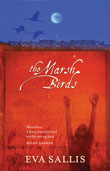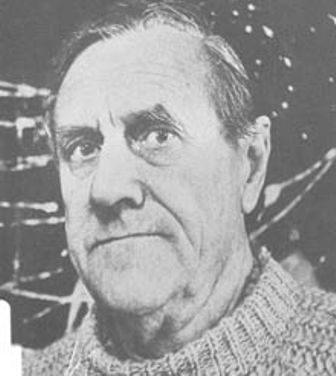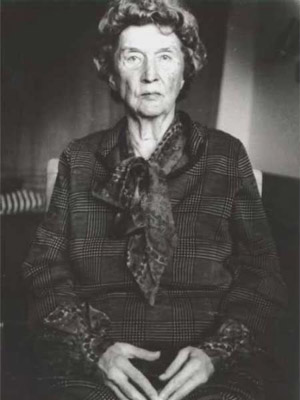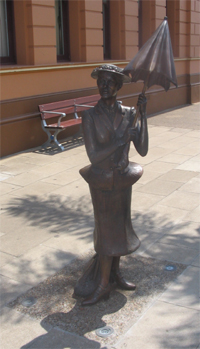The Age
The first two paragraphs of Morag Fraser's review of Barry Jones's autobiography, A Thinking Reed, just about say it all: "Late in this monumental essay on his life and times, Barry Jones relates a story about Primo Levi. Once, while in Auschwitz, the sage chronicler of human survival broke off an icicle to relieve his thirst. A guard knocked it out of his hand. 'Why?' asked Levi. 'Here is no why,' the guard replied...The story is an image of hell for Jones. This is the arbitrary, unaccountable world, indifferent to human suffering, dismissive of the human yen to understand." I've said before how much I admire Jones, both as a man in the world and as a politician. He always struck me as someone who entered parliament with only the best intentions in mind. The trouble is, parliament is definitely an arena in which good guys finish last. They shine for a while, but the nay-sayers pull them down. Fraser sees this as well, and enjoys all parts of this memoir. "I don't often hanker for multi-volumed works, but I wished for more all the while I was reading this." Jones couldn't ask for more I suspect.
Gregory Day is very approving of Andrew McGahan's new novel, Underground. "Since his foray into crime fiction with the Ned Kelly-winning Last Drinks in 2000, McGahan has been regarded as something of a genre-buster, a label reinforced by his highly literary Miles Franklin-winning follow-up, The White Earth. The publication of Underground, however, makes McGahan's oeuvre up to now look as predictable as our Prime Minister." It is certainly a change from his previous works and Day is not sure how it will be accepted: "No doubt his new genre-buster will offend the Oz-Lit police but it's how many other readers it might reach that is the real issue. Keep a close eye out on aeroplanes, trains, buses, even bicycles, for people reading this important book." I'm not sure who the "Oz-lit police" are but I'm pretty certain they'll read this novel with a lot of interest.
Peter Pierce is no someone I have seen review fantasy novels before so his look at Lian Hearn's The Harsh Cry of the Heron is certainly of interest. And he is very impressed: "Hearn is intent on creating a fictional world that is not spun from the whole cloth of an author's indulgent fancy (compare Tolkien) but from an awareness of politics and compromise, high and often treacherous policy, the reckoning of losses that all these collisions entail.
"The novel's commitment to its imaginative enterprise is intensely serious, but also playful; never is it ponderous or solemn.
"Here is another intelligent, accomplished, audacious and finely written novel by an Australian that has nothing to do with its own country; that seeks and should command a transnational audience for popular entertainment of a superior order."
Short notices are given to: Building a Masterpiece: The Sydney Opera House edited by Anne Watson which "confirms that the Sydney Opera House is a marvel of design, engineering and technology"; Ned Kelly and the Old Rellie: 50 Micro Lives of Great Australians by Gerard Windsor who "has taken salient details or events from famous Australians' lives and fashioned nifty four-line rhymes or 'micro verses'"; Mr Stuart's Track by John Bailey: "John McDouall Stuart, according to this biographer, is not only Australia's greatest explorer but the least appreciated"; School Days edited by John Kinsella who "has collated snippets of nostalgia from various Australian notables including Carmen lawrence, Veronica Brady, Marion Halligan and Frank Moorhouse. A variety of locations and educational institutions are mulled over through wise eyes."
The Australian
The major item this week is Peter Wilson interview with Clive James, on the occasion of the publication of his latest volume of memoirs, North Face of Soho. James is 67 now and believes he needs about another 40 years to complete all he has planned. He doesn't give himself much more than about 10.
Peter Rose, editor of "Australian Book Review" considers David Malouf's new collection of short stories, Every Move You Make. "As in most of Malouf's writings, the characters' stories are personal, yearning, metaphysical, without any overt philosophising. Little happens in these stories, as in life, as Virginia Woolf once reminded us. Malouf is wary of plot. The stories unfold like moods, like sweetly orchestrated sonatas." Still no mention of The Police.
Short notices are given to: Amy & Louis by Libby Gleeson, illustrated by Freya Blackwood: "Read this heart-warming book aloud: it won't leave readers breathless, character voices add fun and the rhyming refrain 'Coo-ee Louis", allows for a bit of vocal gymnastics"; Carpet of Dreams by Tessa Duder, illustrated by Mark Wilson: "It's a long story for a picture book but, by weaving countries' histories with personal ones, it is captivating and leaves readers wanting to learn more about carpets and [the main character's grandmother]"; Rose By Any Other Name by Maureen McCarthy, whose "books are engrossing because the protagonists' lives ring true and she articulates the feelings that most people leave unsaid"; Destroying Avalon by Kate McCaffrey: "Nothing here in the way of deep characterisation and plot but McCaffrey's novel is an eye-opener to a sinister contemporary world in which digital space is way out of control"; The Concerto Inn by Jo Gardiner whose "writing is nervy and over-polished, a recipe that showcases her poetic gifts but may leave readers fidgeting for action"; The Dark Part of Me by Belinda Burns in which "The emptiness of human existence gets a solid workout".





